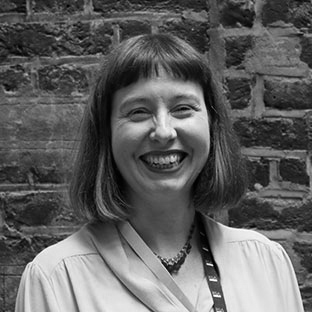As we emerge from Covid-19, Ruth Hannan argues there is an opportunity to shift from short-term solutions to approaches based on deeper understanding of citizens’ needs and which focus on systemic change.
Two key things have stood out about the impact of Covid-19 and the response to it. The first, that we can no longer approach health as a single condition to be treated but recognise the interplay with inequality at every step. The second, that local communities and local services are often best placed to respond to needs of people in their area.
 This is not straightforward; truly addressing health inequalities at a systemic level and enabling an equitable localised service delivery takes time. Over the past year, and as we edge towards what we hope may be the end of the pandemic, many organisations (including the RSA) have put forward ideas and proposals on what must be done to be better prepared and to deliver better services in coming years. The government has even issued a Health White Paper - Integration and Innovation: working together to improve health and social care for all. However, despite its ambitious title, the White Paper singularly fails to respond to these two key issues and so misses an opportunity to develop a system that does not focus solely on health, but on wider wellbeing, and thereby responds to our current population’s needs and those of future generations.
This is not straightforward; truly addressing health inequalities at a systemic level and enabling an equitable localised service delivery takes time. Over the past year, and as we edge towards what we hope may be the end of the pandemic, many organisations (including the RSA) have put forward ideas and proposals on what must be done to be better prepared and to deliver better services in coming years. The government has even issued a Health White Paper - Integration and Innovation: working together to improve health and social care for all. However, despite its ambitious title, the White Paper singularly fails to respond to these two key issues and so misses an opportunity to develop a system that does not focus solely on health, but on wider wellbeing, and thereby responds to our current population’s needs and those of future generations.
There has been a rush to propose solutions to (our already challenged) public services over the past 12 months. More local control, more centralised control, more money, more nationalised services, more responsive locally delivered services; the list goes on. At the RSA, we have developed the Living Change Approach, which we believe will cope better with the complex challenges of the 21st century. At this moment, instead of rushing to offer solutions, we believe what is really needed is to stop, listen and learn.
Through our developing People and Place programme, our team at the RSA is looking more closely at wellbeing; we want to learn with people in their localities and understand the diverse range of needs that exist in any one place. This involves learning about what people see as the challenges and strengths of their communities as well as what they want, what they can do for themselves and what needs to change within the wider system to achieve their aims. Within this process, it is important to recognise whose voices are often heard and whose are not and to understand the role that we can play in either enabling or disabling change.
The RSA has been inspired by the work that many Fellows are doing at the moment; much of this resonates with the Living Change Approach and we hope to work with those involved in these initiatives as partners whose work we will continue to champion. For example: Toby Lowe is developing a new model of public service commissioning; the incredible range of voices and people involved in Social Care Future; Matthew McKenzie’s use of his experience of being a carer to continue to push the mental health system to do better; Tanya Compas, who is working to ensure queer black voices are included in research; and Karolina Medwecka who is leading Birmingham’s Living Lab.
Eight months ago, the People and Places programme outlined the need for a broad and inclusive conversation on the future of health and social care. That need has not changed. Taking a solution – developed in isolation to solve a singular issue – will not help us develop systems that are driven by our collective wellbeing. It is clear that this is shaped by the intersection between our economic security, our physical health, our mental health, our ability to influence services around us, our housing needs, the environment we live in and far more. As we emerge from Covid-19, we should take this opportunity not to develop a short-term solution but to truly understand our citizens’ needs and to develop a system that can put those needs at its heart.
Ruth is a Transform Programme Manager in the RSA’s Research and Impact department, co-leading on our work in public service innovation and community empowerment.
The RSA has been at the forefront of societal change for over 250 years – our proven Living Change Approach, and global network of 30,000 problem-solvers enables us to unite people and ideas to understand the challenges of our time and realise lasting change.
Make change happen. Find out more about our approach. #RSAchange
Related articles
-
Coming up in the calendar: LitFest 2025
Fellowship news
Fionna Monk
Taking place from 8 – 26 February, LitFest 2025 will feature an exuberant blend of events celebrating creative writing across Northeast Lincolnshire. Drawing visitors from around the globe, The Hammond House Literary Festival will culminate in a spectacular Festival Finale and Awards Ceremony at the University Centre Grimsby. This year, RSA Central continues its vital support of the event, sponsoring the Poetry category for the third year running.
-
Introducing the Fellowship Promotion Guide
Fellowship news
Fionna Monk
Our brand-new Fellowship Promotion Guide is a powerful new resource designed to make it easier than ever for current Fellows and staff to share the value of the RSA Fellowship with others.
-
Why 2025 is an exciting year to be an RSA Fellow
Fellowship news
Fionna Monk
Happy New Year! 2025 is shaping up to be a landmark year for the RSA Fellowship, brimming with new opportunities, initiatives, and global collaborations. There’s never been a more exciting time to be part of this dynamic and engaging community. Here’s more on why this year promises to be an inspiring and impactful year for RSA Fellows worldwide.




Join the discussion
Comments
Please login to post a comment or reply
Don't have an account? Click here to register.
I hope that the role and importance of public libraries will not be overlooked in this study
A well written blog. Enjoyed reading.